
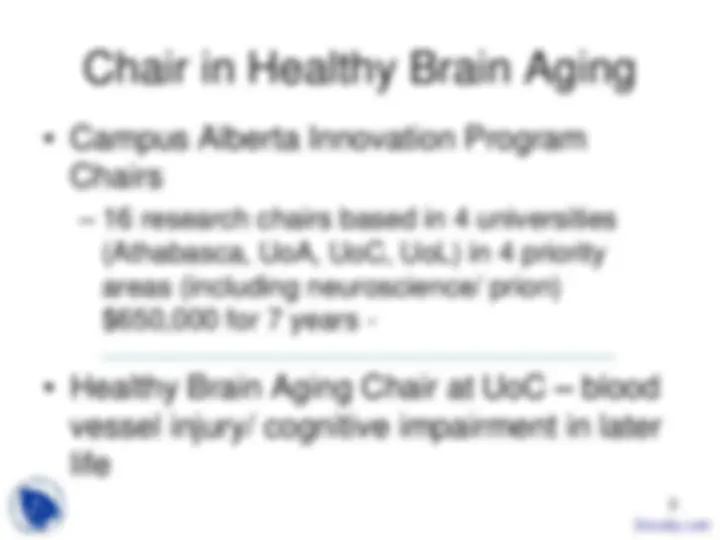
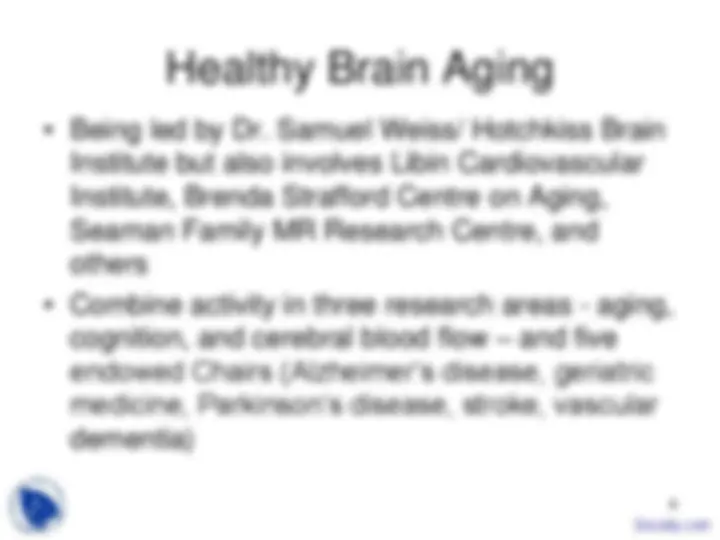
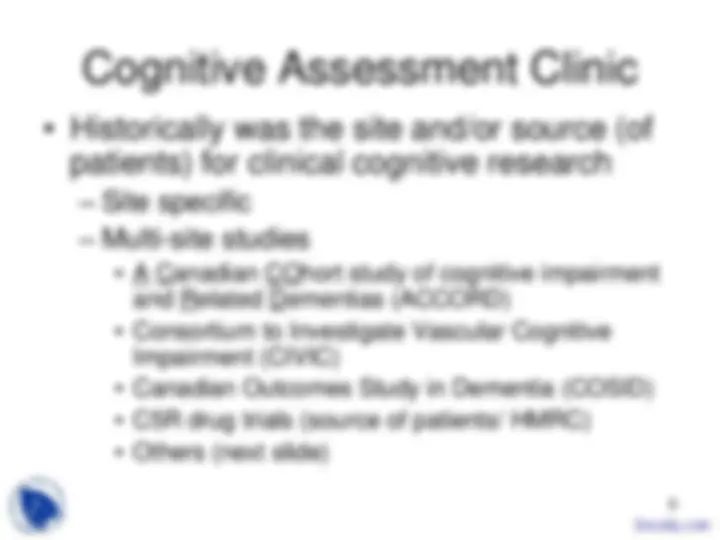
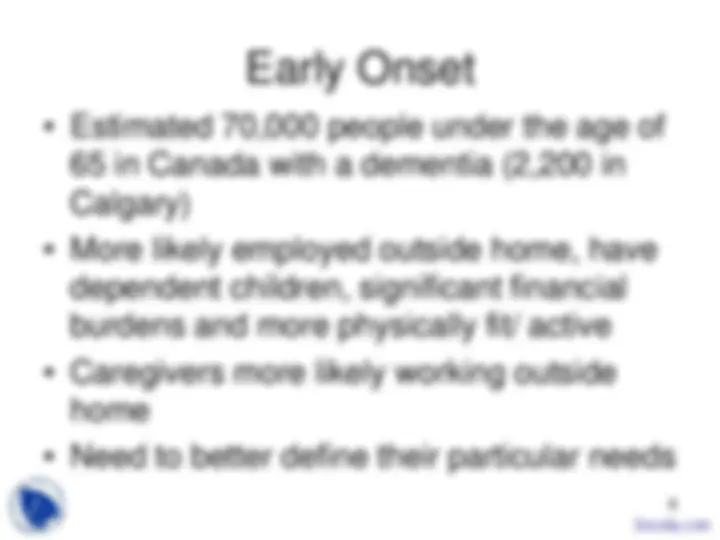
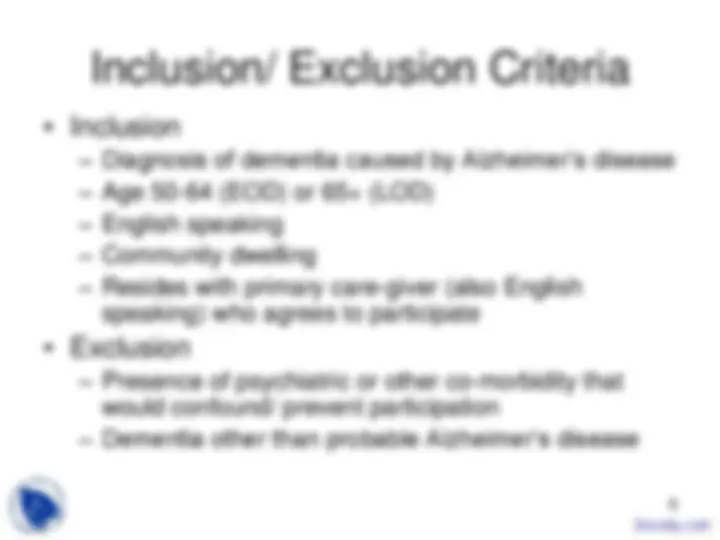
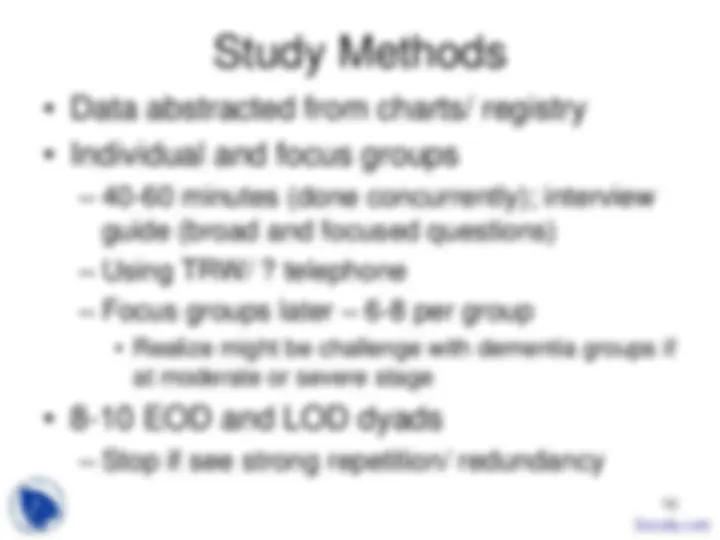
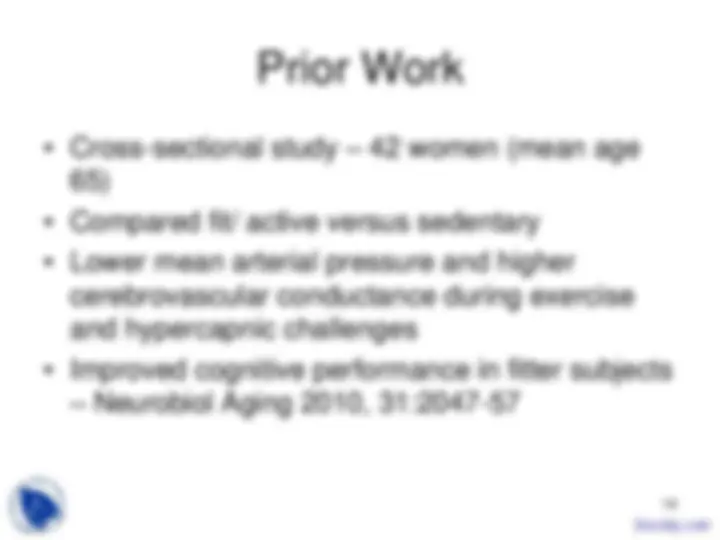
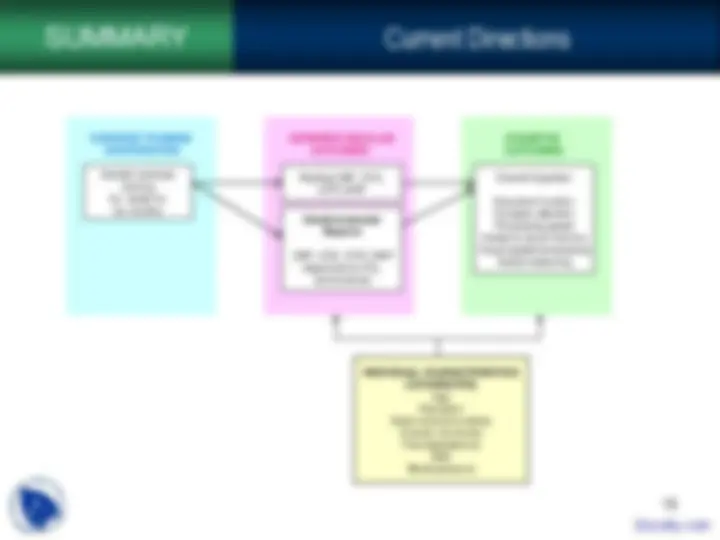
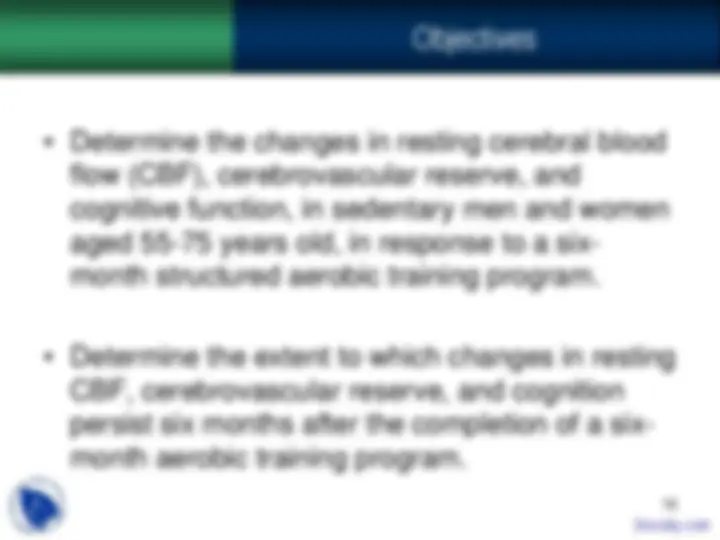
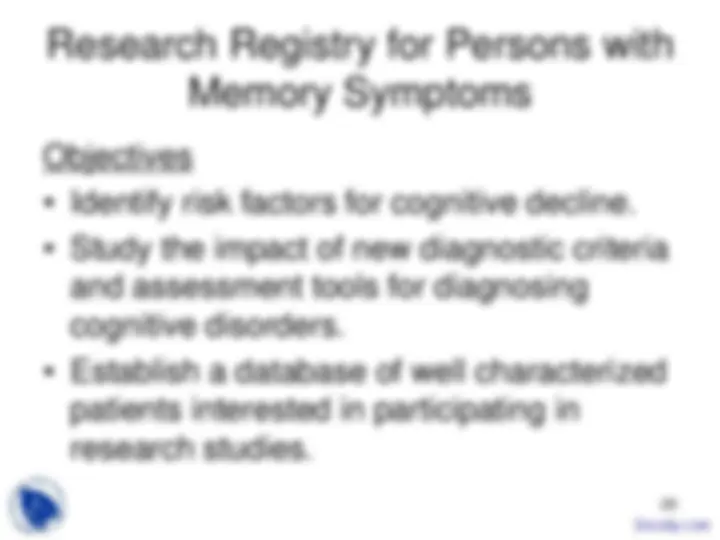
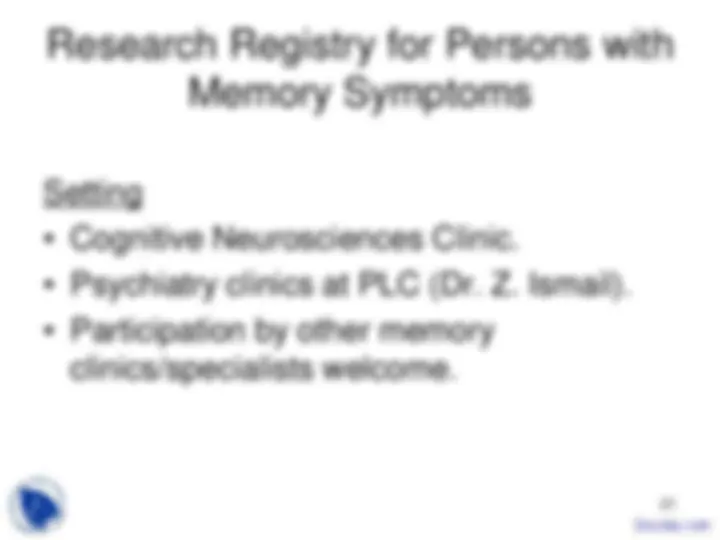
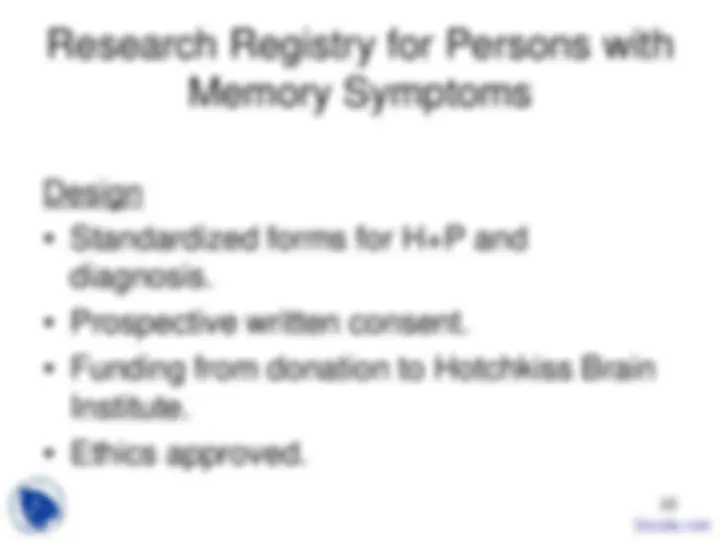
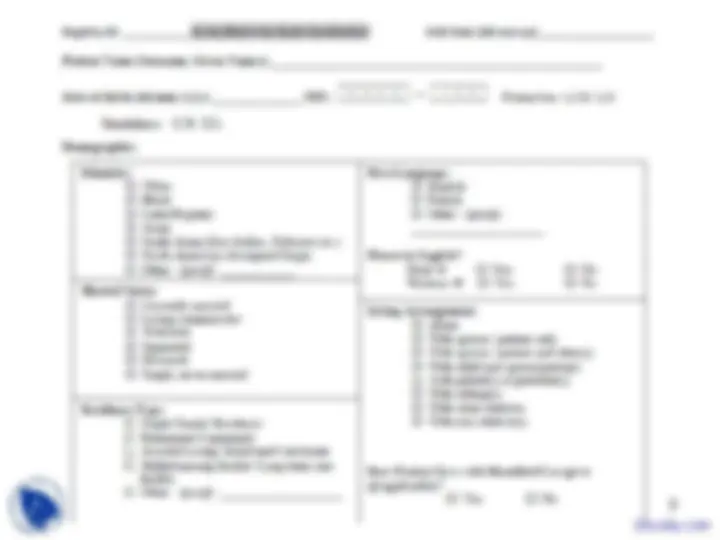
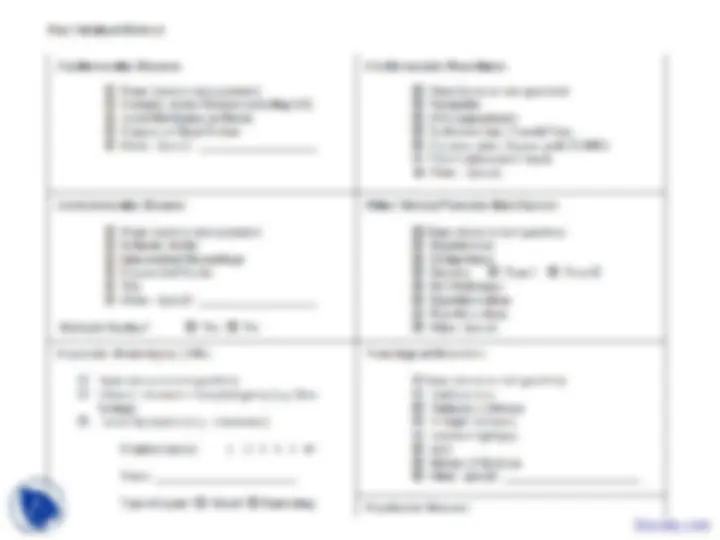
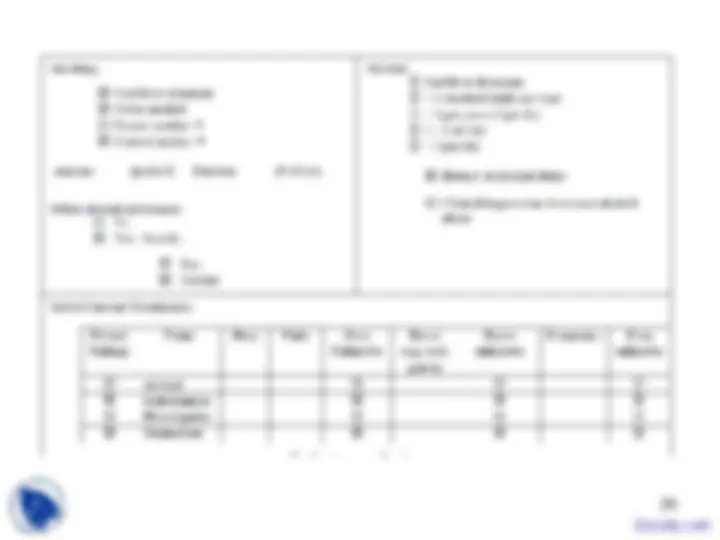
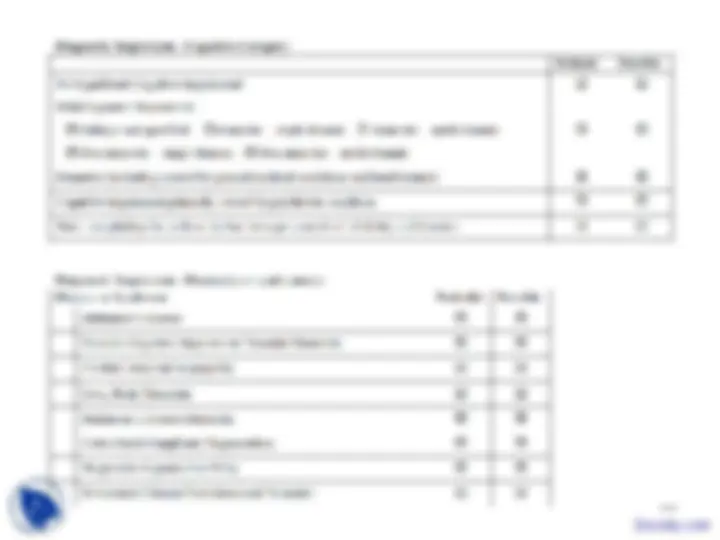
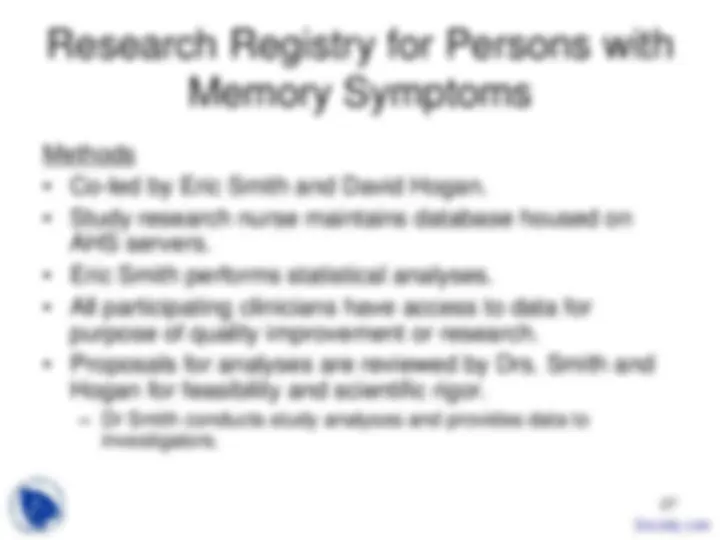
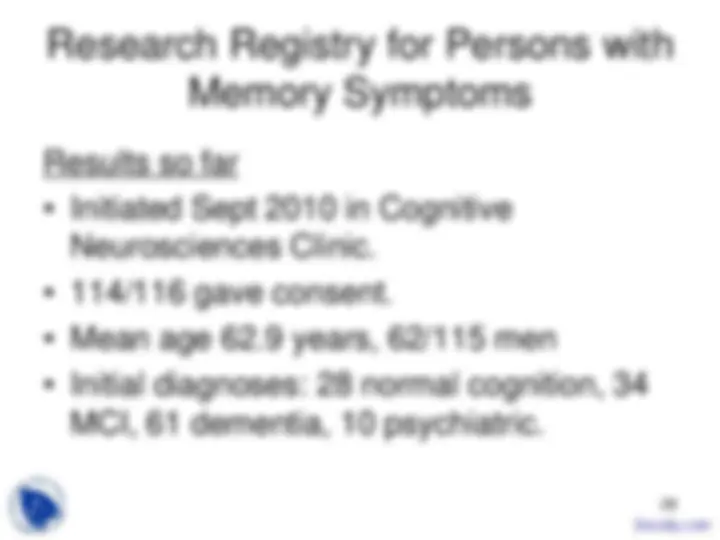
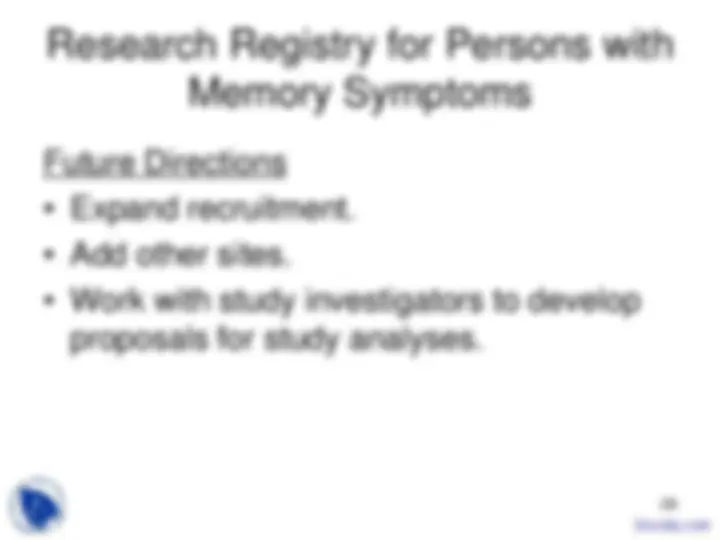
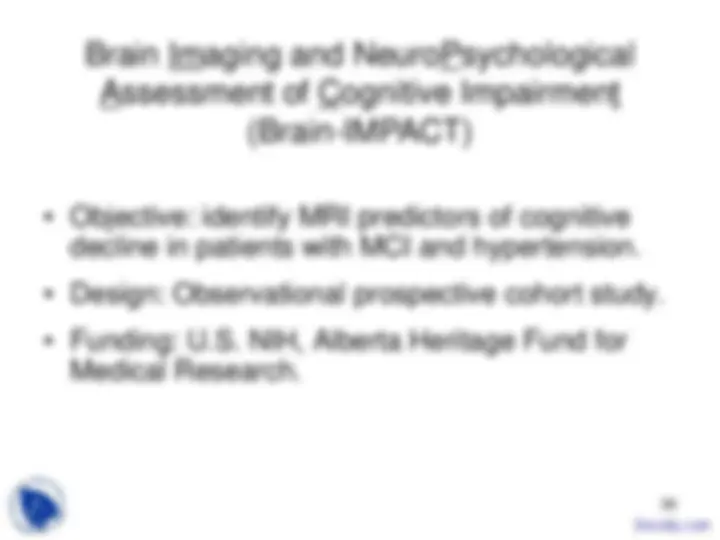
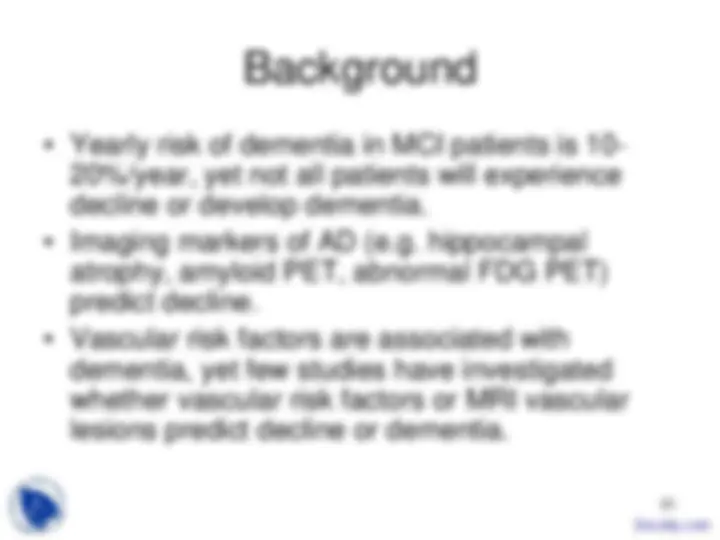
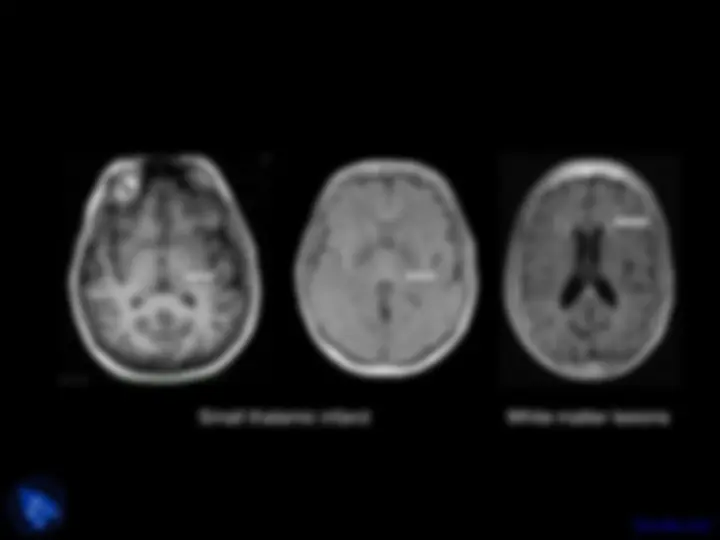
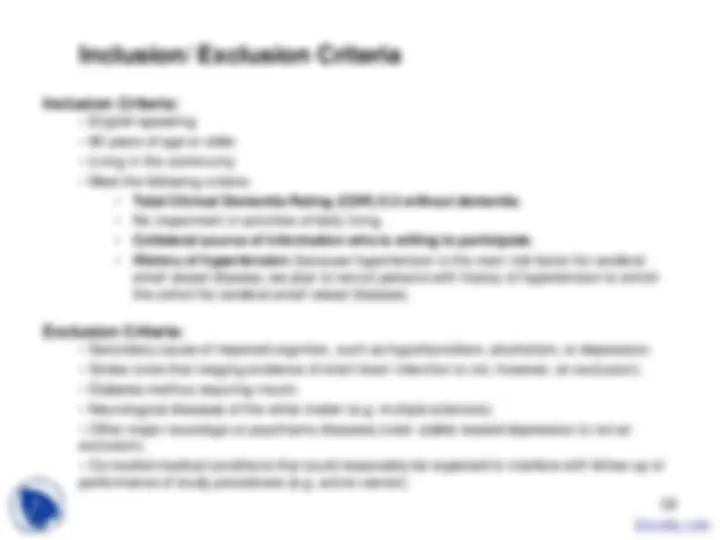
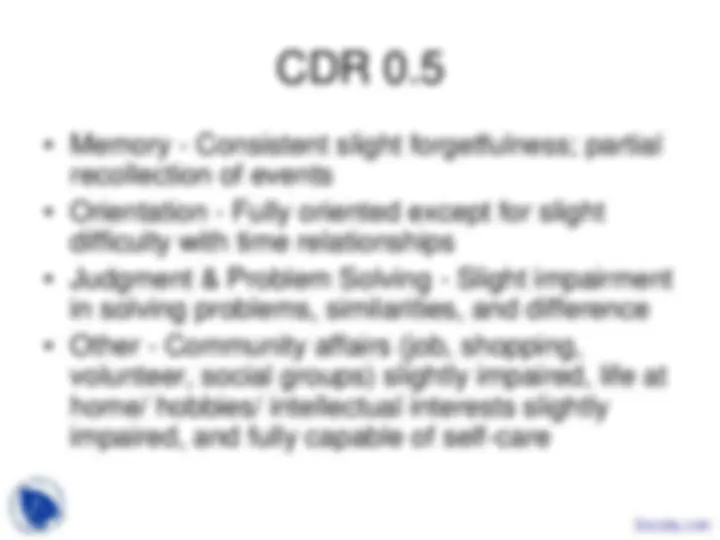
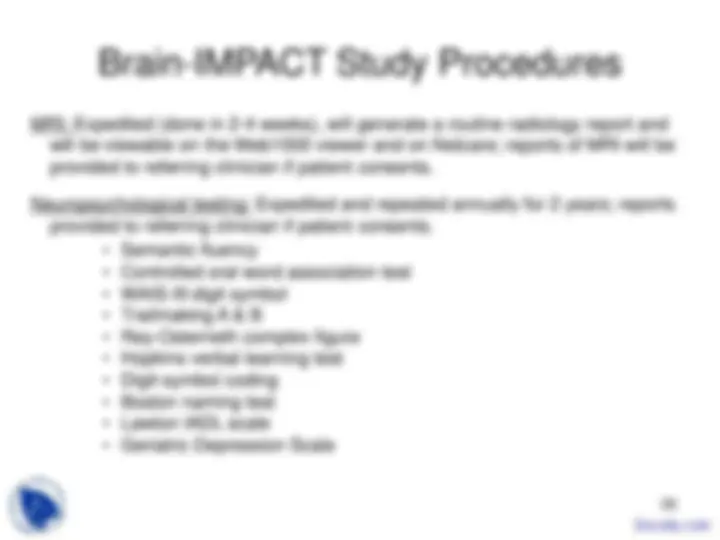
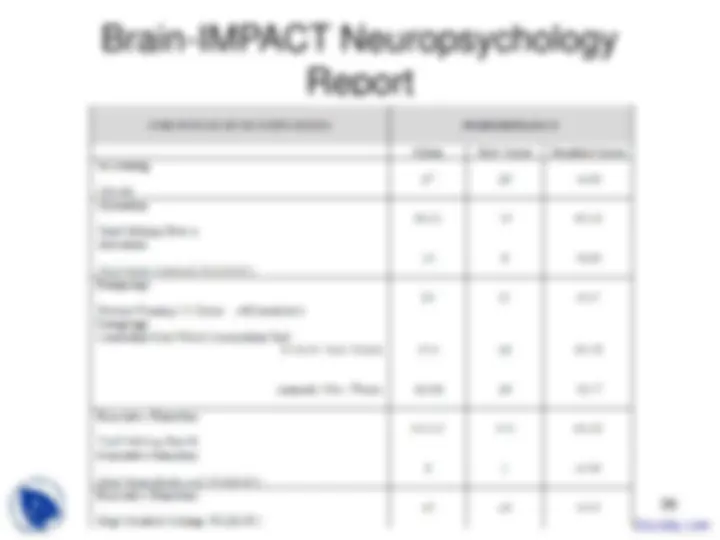
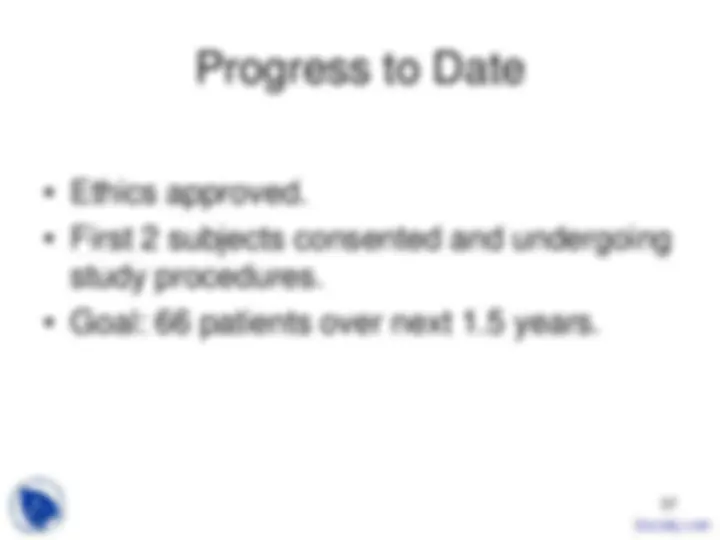


Study with the several resources on Docsity

Earn points by helping other students or get them with a premium plan


Prepare for your exams
Study with the several resources on Docsity

Earn points to download
Earn points by helping other students or get them with a premium plan
Community
Ask the community for help and clear up your study doubts
Discover the best universities in your country according to Docsity users
Free resources
Download our free guides on studying techniques, anxiety management strategies, and thesis advice from Docsity tutors
Information about ongoing dementia research activities in calgary, including the healthy brain aging initiative, the cognitive assessment clinic, and studies on the effects of regular exercise on cerebrovascular reserve and cognitive decline. Participants will learn about the objectives, methods, and results of these research projects, as well as their potential impact on patients and caregivers.
Typology: Slides
1 / 35

This page cannot be seen from the preview
Don't miss anything!




























1
2
4
5
7
Early versus Late Onset Dementia Study
8
10
12
Effects of Regular Exercise on Cerebrovascular Reserve in Older Adults: Role in the Prevention of Age-Related Cognitive Decline
Principal Investigator: Dr. Marc Poulin
Co-Investigators: Dr. Gail Eskes (Dalhousie University), Dr. Christine Friedenreich, Dr. Michael Hill, Dr. Eric Smith, Dr. David Hogan and Dr. Stewart Longman
Collaborators: Dr. Todd Anderson, Dr. Richard Leigh, Dr. Wayne Giles
Trainees: Dr. Margaret Davenport (HSFC PDF), Dr. Genevieve Arsenault (AIHS PDF), Amanda Tyndall (PhD student)
14
15
EXERCISE TRAINING INTERVENTION CEREBROVASCULAROUTCOMES COGNITIVEOUTCOMES Aerobic exercisetraining 3x / week for six months
Resting CBF, CVC,CVR, MAP Cerebrovascular Reserve CBF, CVC, CVR, MAP responses to CO 2 and exercise
Overall Cognition Executive function Complex attention Verbal & visual memory^ Processing speed Visual-spatial processing Verbal reasoning
INDIVIDUAL CHARACTERISTICS(COVARIATES) Education^ Age Socio-economic statusOvarian hormones Free testosterone BMI Blood pressure
SUMMARY (^) Current Directions
17
Aim to enroll 250 participants (125 men/ 125 women); staggered – starting in November 2009 and ending in July 2012; complete data collection by December 2013. Current number: 146 participants (89 female, 57 male) The study is supported by the Canadian Institutes of Health Research (CIHR) of $673,925 + an industry partner (Polar Electro) who has provided some equipment (in kind).
18
21
Research Registry for Persons with Memory Symptoms
22
Research Registry for Persons with Memory Symptoms